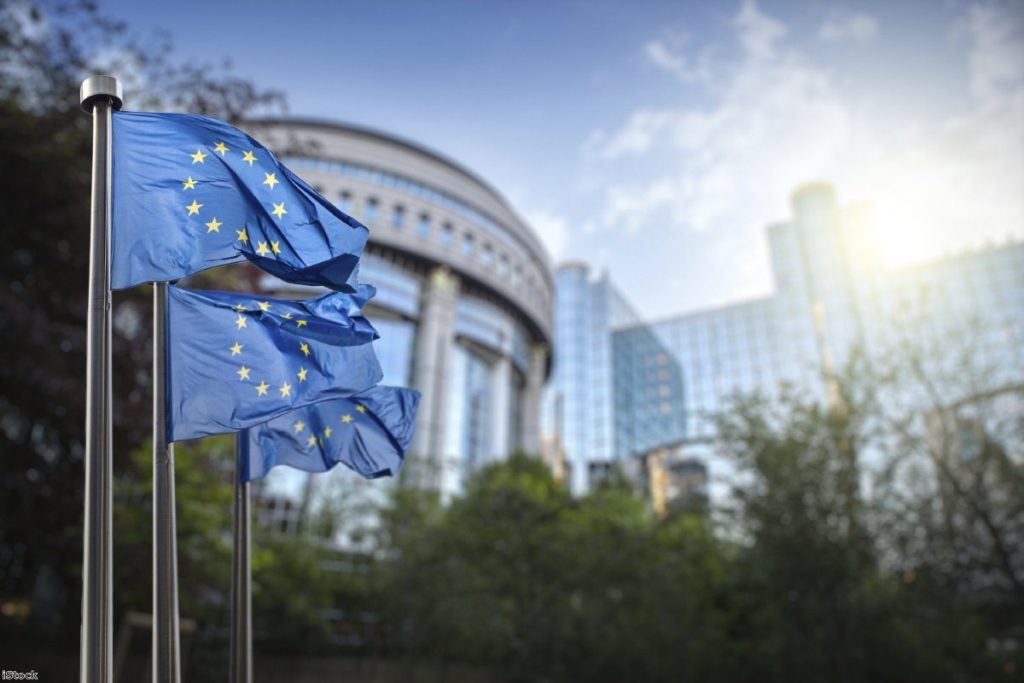I was talking to a strategy expert the other day and something he said stuck with me. When you go into negotiations, you need to offer your partner something positive – an advantage they did not have before negotiations which they do have now.
In the case of Brexit, what is that exactly? Almost all our arguments – about transition, about the customs union, about EU citizens, about the Irish border – are about the EU working with us to neutralise the risks we have ourselves created by leaving. Our proposition is: If you struggle really hard for the next few years, dedicating extraordinary levels of manpower and intellectual capacity to this project, you can succeed in ending up exactly where you were at the start. It's about damage limitation, rather than gain.
But in fact even this is false. Britain is a net contributor to the EU. Its exit means either that countries like Germany have to pay more or that countries like Poland are going to get less. There is no Brexit outcome which adds up to a status quo. It is all worse than the status quo.
And that is just the financial aspect. The other negative concerns risk. Yesterday's UK position paper on Northern Ireland basically requested an open border for goods and people. If the UK, as it threatened earlier this year, turns itself into a low-regulation tax haven, that open border is a threat to the regulatory and legal integrity of the EU. Whatever rules they impose, there is a wide open backdoor for them to be flouted. If they pass a law on chemical standards on packaging, for instance, there'd be nothing to stop the products which did not meet that specification flooding in through Ireland.


Anyone thinking strategically about the negotiations would see that these are all negative outcomes for the EU, even in the best-case scenarios. But what's interesting is that no-one on the UK side really seems to be thinking about the EU at all. After all, our official position on customs is to have "a" customs union, not "the" customs union. Our position on free movement is to basically maintain it while withdrawing from the system. These distinctions are absurd, but they satisfy the political agendas of those who promise them. In other words, they are designed for domestic consumption.

This has been the emotional instinct of the Brexit debate since the start of the campaign. It has been defined by us saying I WANT I WANT I WANT without any real sense that there are other countries with their own interests. It's been there from Boris Johnson's early promises that you could get rid of free movement and yet stay in the single market to the way tabloids constantly scream about open borders and then get terribly upset when British tourists face queues in foreign airports.
This has been a hermetically-sealed, inward-looking debate. Ukip might not have become the official campaign, but their Little Englander mentality defined it, both in content and in attitude. It is a debate which does not really recognise, or care much about, the rest of the world. You could see that much when Theresa May tried to neutralise Boris Johnson by putting him in the Foreign Office. To her, that great office of state amounted to 'out of sight, out of mind'.
Brexiters treat the British position paper on Ireland as a plan, when it is, in reality, a long petition for the EU not to enact its own laws, in order to save us from the repercussions of our own decisions.
Britain has, as requested, come up with a way to avoid a land border in Ireland. I'm optimistic that the EU won't insist on erecting one.
— Daniel Hannan (@DanielJHannan) August 16, 2017
Or they suggest the EU is trying to somehow punish Britain for refusing to tailor its laws to whatever demand we happen to be making at the time.
Britain is fighting to save Ireland from an EU-imposed hard border – @asabenn #premium https://t.co/4asyhM9HWs
— The Telegraph (@Telegraph) August 16, 2017
This attitude has made us less consequential on the world stage and alienated many of us inside the UK from a country we used to admire. But it is more than just immoral. It is also ineffective.
The absence of empathy, of being able to see things from someone else's perspective, doesn't just diminish you individually. It makes it harder for you to get what you want, because you cannot put yourself in someone else's shoes and imagine what might get them onside. That is the problem Britain is having now. Our plans have no resonance, because they are tailored around our own needs rather than those of our negotiating partner.
More than anything, this is just a really bad strategy. The longer we insist on thinking only about ourselves, the less able we are to get what we want.
Ian Dunt is the editor of Politics.co.uk. His book – Brexit: What The Hell Happens Now? – is available now.
The opinions in politics.co.uk's Comment and Analysis section are those of the author and are no reflection of the views of the website or its owners.











